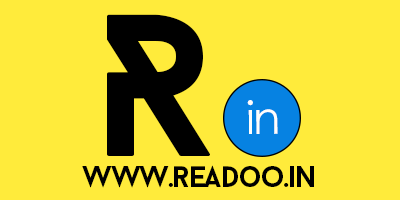The International Monetary Fund (IMF) and the World Bank were created in 1944 after World War II. And the World Trade Organization (WTO) was created in 1995. And, these three organizations help to shape the global economy.
IMF is an organization of 188 countries which work towards promoting global monetary cooperation, secure financial stability, facilitate international trade, promote high employment and sustainable economic growth and reduce poverty around the world. IMF’s primary purpose is to ensure the stability of the international monetary system—the system of exchange rates and international payments that enable countries to transact with each other.
Lending money to poor countries is also a major initiative at the IMF. The organization provides financing to help troubled nations avoid or recover from economic challenges.
The World Bank Group supports development by providing financial and technical assistance to credit-worthy, middle- and low-income nations and provides loans and grants to poor countries for education, infrastructure, agricultural-environmental-financial and private sector development. It also provides money and advice to private sector entities, encourages foreign direct investment in developing nations, helps to resolve the inevitable trade disputes between the countries.
World Bank and IMF work closely. These groups are self-funded by its members and holds office in Washington, D.C.
The World Trade Organization (WTO) established for global international dealing with the rules of trade between nations to encourage cross-border commerce. This includes setting up the agreements, interpreting the agreements, and facilitating dispute settlement.
The idea behind these organizations is that the impartial politicians could create a more efficient global economy than the disorganized interaction of free market forces.
But are these organizations really working in right directions or even accomplishing the core purpose of its establishment. How far have these groups aided towards positive global development? The financial assistance provided by these groups comes with string and doesn’t seem to be so liberal. The motive behind such aid is controversial.
These groups claim to support the global economy at the cost of destroying the local economy creating an imbalance in the global trade and development. Ages have only added more worrisome situation in global trade and commerce, inequality, unemployment, poverty, global warming, aging population, bad debts war, global unrest, etc.
No proper funding has been done towards health care, education, water, housing, employment, etc. There is a need of such more dedicated groups/subgroups to look individually in above issues separately.
The Board members of these organizations are from richer countries holding majority voting power hence most of the efforts and discussion goes in favor of rich countries. U.S has majority hold on the board of these organizations. Poor countries have very less role or no role to play in the discussions.
These organizations can help optimum use of the global resources. Also, a need for proper dispute mechanism body was raised in past years such that the authorities can sanction against rich and favor the poor countries.
U.S. has reportedly announced about the changing regulations for WTO for efficient working but yet no change has employed. Many sectors and poor countries are left from the aid of these organizations.
Most of their past funding and operating were in the interest of rich nations at the expense of the poor. Few economists had named these groups as ‘Terrible Triplet’. The current trend to privatize public services such as transport, health and water are doubted by the experts.
They are only benefiting the rich. After so many years of formation of these groups, there is a lot of inequality among the countries and sectors. Either the help is not reaching out to the needy or the organizations are not taking efforts in correctly. The globalization efforts have only created inequality. Protests, including those in Davos, Switzerland, Washington, D.C., Cancun, Mexico, and other major cities are a regular feature at IMF, World Bank, and WTO events. Beside from the public protests, even some business leaders have reportedly argued against these organizations.
Over the years these organizations have played a key role in helping countries to turn around through the use of economic aid. However, this is only one of the many roles that these organizations play in global economic issues. These organizations need to optimize the resources and expand their assistance.
The IMF issues the reports yearly pointing out the problems and potential risks to the world economy and financial markets. But no proper mechanism is set to work towards resolving those issues.
Instead of IMF’s technical assistance to the countries to strengthen their economic policy, tax policy, monetary policy, exchange rate system and financial system stability global economy is in crisis.
Major reforms and drastic policy changes in the role of these triplet is required looking at the levels of influence some countries have over these organizations, and its successes and failures.
Changes in existing policies to suit the current demand of trade and commerce is vital. Providing assistance is not sufficient to these groups. These groups should aim to create a balanced global economy by addressing local needs and solutions as well.









